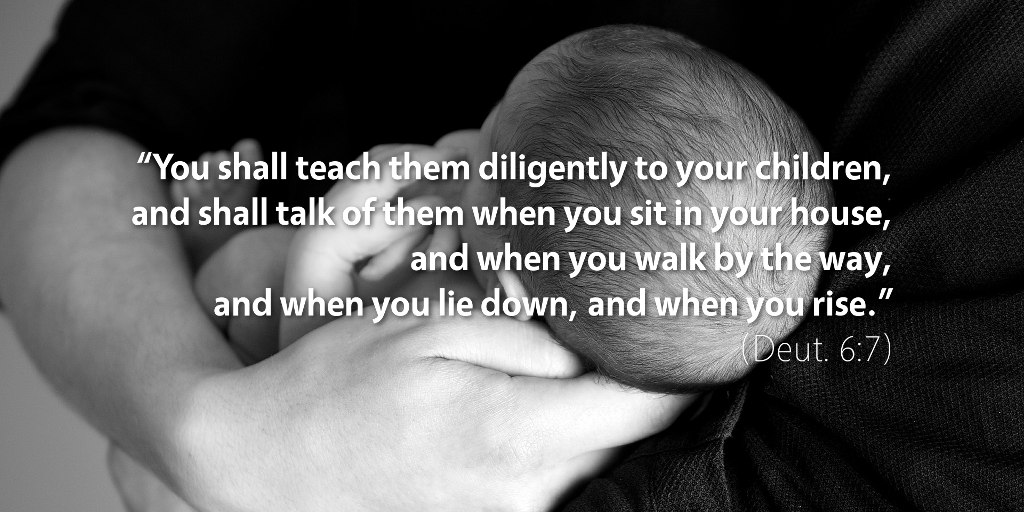Bible Readings for June 2nd
Deuteronomy 6 | Psalm 89 | Isaiah 34 | Revelation 4
Deuteronomy 6 is one of the most important chapters in the Old Testament, not least for the fact that Jesus quotes Deuteronomy 6:5 as one of the two greatest commandments (“You shall love the LORD your God with all your heart and with all your soul and with all your might”; see Matt. 22:37, Mark 12:29–30, Luke 10:27). But the main focus of Deuteronomy 6—and our focus for today’s meditation—is Moses’s insistence that we pass down these profound truths about Yahweh to our children.
There is a great danger that Yahweh’s people will forget about him. In fact, the danger grows greater as Yahweh blesses his people with great and good cities, houses full of good things, cisterns with clean water, and vineyards and olive trees—especially, as in the case of Israel, when God’s people were not the ones to build, fill, dig, or plant these good things (Deut. 6:10–12).
Through much of Deuteronomy, then, Moses is pleading with Israel not simply not to forget Yahweh, but also to remember Yahweh proactively. Moses urges Israel to teach Yahweh’s commandments diligently to their children not only so that their children will remember Yahweh but also so that they themselves will remember Yahweh (Deut. 6:7).
And Moses even tells us explicitly what he means by “diligently”: “[You] shall talk of them when you sit in your house, and when you walk by the way, and when you lie down, and when you rise. You shall bind them as a sign on your hand, and they shall be as frontlets between your eyes. You shall write them on the doorposts of your house and on your gates” (Deut. 6:6–9). Everywhere you go, and in everything you do, teach your children the commandments of Yahweh.
But don’t think that by “commandments,” Moses is talking about dry, outdated rules. Instead, Moses explains that when their sons ask, “What is the meaning of the testimonies and the statues and the rules that the LORD our God has commanded you?” (Deut. 6:20), they are to teach their children the story of how Yahweh redeemed Israel out of Egypt, to bring them into their inheritance in righteousness (Deut. 6:21–25).
The story of God’s redemption is the meaning of the rules. The rules teach us how to live in light of God’s gracious redemption.
So, how are we teaching our children the story of our own redemption? How are we explaining to them that, although we were once slaves to sin, Jesus died to redeem us and with great signs and wonders rose again from the dead? How are we whetting their appetite for the promised new heavens and new earth?
By passing the story of Christ on to our children, both we and our children learn to love the LORD our God with all of our hearts, souls, and might.
Podcast: Play in new window | Download (5.0MB) | Embed
Subscribe: Apple Podcasts | RSS | More

Scripture quotations are from The Holy Bible, English Standard Version copyright © 2001 by Crossway Bibles, a division of Good News Publishers. Used by permission. All rights reserved.


